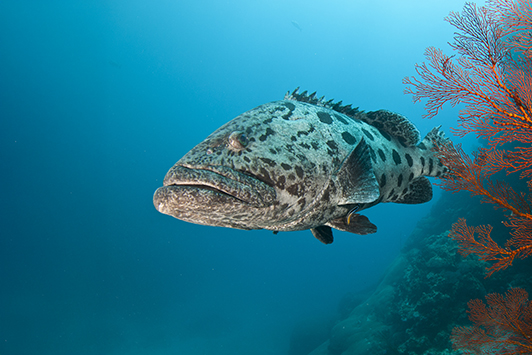Species may be protected because they are threatened or endangered, or for social or cultural reasons.
Protected species are divided into 3 categories:
- totally protected
- commercially protected
- recreationally protected.
The term ‘totally protected’ generally protects species from any and all types of fishing. Species that are totally protected cannot be taken for any reason.
Examples of totally protected fish in WA include:
- whale shark
- potato cod
- humphead Māori wrasse
- leafy and common sea dragons
- sawfish
- white shark.
Species that are commercially protected may not be taken by commercial fishers by any method of fishing, unless specifically excepted.
Examples of commercially protected fish include:
- billfish (such as marlins, sailfish and spearfish)
- sharks and rays, other than by licensed shark fishers
- oyster of the families Ostreidae and Pteriidae
- all freshwater aquatic organisms (other than sooty grunter and catfish of the family Ariidae).
Species that are recreationally protected may not be taken by recreational fishers by any method of fishing.
Examples of recreationally protected fish include:
- black and smooth stingrays within the South Coast bioregion and West Coast bioregion only
- barramundi in excess of 800 mm in length.
Protected species legislation
The Fish Resources Management Act 1994 (FRMA 1994) protects some WA species that must not be taken by any means. The FRMA sections 46, 47 and 48A state that it is against the law to take, possess, sell, purchase, consign or bring into the state or into WA waters any protected fish species, and that penalties may apply. Any protected species caught must be returned to the water immediately.
All totally protected, commercially protected and recreationally protected fish are also listed in the FRMR, Schedule 2, Part 1, 2 and 3.
Fish and other marine species (for example whales, dolphins, sea lions and turtles) may also be protected under state legislation administered by the Department of Biodiversity, Conservation and Attractions. They may also be protected under Commonwealth legislation (such as the Environment Protection and Biodiversity Conservation Act 1999) administered by the Department of Climate Change, Energy, the Environment and Water.

